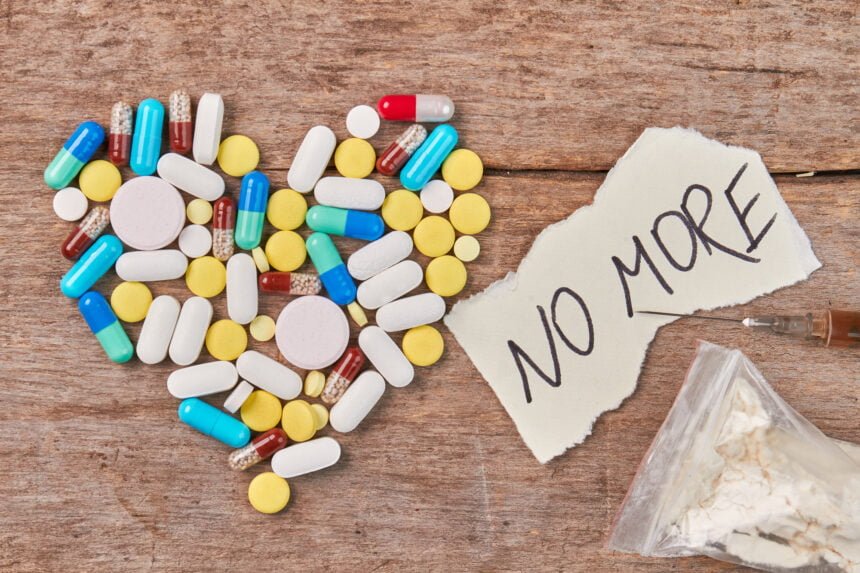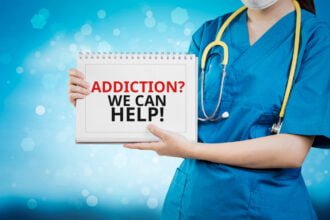For many people struggling with addiction, the idea of drug rehabilitation can feel daunting. It’s a big decision and often one shrouded in a bit of mystery. But drug rehab isn’t about punishment; it’s about healing and building a life free from dependence.
This guide will shed light on the process of drug rehabilitation. It will explore the various programs offered, the therapeutic approaches used, and the crucial role of ongoing support.
Assessment and Evaluation
The first step in any comprehensive drug rehabilitation program is a thorough assessment and evaluation. Upon entering a rehab facility, individuals undergo a comprehensive evaluation to determine the extent and nature of their drug addiction.
This initial assessment includes detailed interviews and questionnaires to understand the individual’s substance use history, any co-occurring mental health disorders, and their overall physical health. Medical professionals also conduct physical examinations and may require blood tests or other diagnostics. The information gathered during this assessment phase is crucial for developing a personalized treatment plan that addresses the specific needs and circumstances of the individual.
Detoxification (Detox)
Detoxification is often the first major step in the rehabilitation process. This phase focuses on clearing the body of addictive substances and managing withdrawal symptoms. For many individuals, detox is medically supervised to ensure safety and comfort.
Withdrawal from certain substances can be particularly challenging and even dangerous, necessitating professional medical intervention. Medications may be prescribed to ease withdrawal symptoms, reduce cravings, and prevent complications.
Therapy and Counseling
Therapy and counseling form the cornerstone of the rehabilitation process. Individual therapy involves one-on-one sessions with a licensed therapist, where the person explores the underlying causes of their substance addiction, develops coping strategies, and sets recovery goals.
Cognitive-behavioral therapy (CBT), dialectical behavior therapy (DBT), and other evidence-based approaches are often employed. Group therapy provides a supportive environment where individuals can share experiences and gain insights from peers who are facing similar challenges. Family support is also integral, involving family members in the recovery process to repair relationships, educate them about the drug addiction treatment, and develop a supportive home environment.
Medication-Assisted Treatment (MAT)
Medication-assisted treatment (MAT) is a specialized approach that combines medications with counseling and behavioral therapies. Medications can help manage withdrawal symptoms, reduce cravings, and treat co-occurring mental health conditions such as depression or anxiety.
Regular monitoring and adjustments to medication are part of the treatment process to ensure effectiveness and address any side effects. MAT has been shown to improve retention in drug treatment programs and increase the likelihood of long-term recovery.
Education and Skills Training
Education and skills training are vital components of drug rehabilitation. Relapse prevention education teaches individuals to recognize and avoid triggers, manage stress, and cope with cravings. This is essential for maintaining sobriety in the long term.
Life skills training helps individuals develop practical skills necessary for daily living, such as job training, financial management, and social skills. These programs aim to empower individuals to lead productive and fulfilling lives after inpatient rehab.
Aftercare and Ongoing Support
The journey to recovery doesn’t end with the completion of an initial rehab program. Aftercare and ongoing support are crucial for sustaining long-term sobriety. Continuing care can include outpatient rehab, support groups, and follow-up appointments to monitor progress and provide ongoing guidance.
Sober living homes offer transitional living environments that provide a structured and supportive community for individuals in early recovery. These homes help individuals gradually reintegrate into society while maintaining a substance-free lifestyle.
Holistic and Complementary Therapies
Many rehab programs incorporate holistic and complementary therapies to support overall well-being. Alternative therapies such as yoga, meditation, acupuncture, and art therapy can help individuals manage stress, improve mental clarity, and enhance emotional healing.
These therapy sessions promote a holistic approach to addiction recovery, addressing the mind, body, and spirit. Nutritional counseling is also a significant aspect, ensuring that individuals receive a balanced diet that supports physical recovery and mental health. Incorporating these holistic approaches can enhance the effectiveness of traditional therapies and contribute to a well-rounded recovery experience.
Support Systems
A robust support system is critical for successful rehabilitation and long-term recovery. Peer support groups, such as Alcoholics Anonymous (AA) or Narcotics Anonymous (NA), offer a structured program and regular meetings where individuals can share their experiences and support each other.
These groups provide a sense of community and accountability, which are vital for maintaining sobriety. In addition to peer support, access to community resources such as employment services, housing assistance, and educational opportunities can help individuals rebuild their lives. Building a strong support network ensures that individuals have the resources and encouragement needed to stay on the path to recovery.
Monitoring Progress and Adjusting Treatment
Effective drug rehabilitation programs involves continuous monitoring and adjustment of the treatment plan. Regular reviews and assessments ensure that the treatment remains effective and relevant to the individual’s evolving needs. Progress is monitored through various means, including drug testing, self-reports, and feedback from therapists and support groups.
If certain aspects of the treatment plan are not working, adjustments are made to improve outcomes. This dynamic approach ensures that the treatment is responsive to the individual’s progress and challenges, enhancing the likelihood of long-term success in recovery.
Conclusion
Drug rehabilitation isn’t a one-size-fits-all solution, but it can be the key to unlocking a brighter future. Remember, recovery is a lifelong commitment, but with dedication and the knowledge gained from this series, you can build the strength and resilience to weather any storm. Don’t hesitate to reach out for help – a supportive community and a brighter future are within your grasp.










